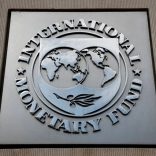Mozambique expects GDP growth of up to 2.5% this year
Mozambique: Scale of food crisis worsened in 2023 – report

Image: Global Report on Food Crises (GRFC) 2024
The magnitude of the food crisis ‘worsened’ in 2023 in Mozambique, where 3.3 million people in 72 of 156 districts analysed ‘faced high levels of acute food insecurity’, points out the ‘Global Report on Food Crises (GRFC) 2024‘, released on Wednesday. Three and a half million people, or 20% of the population analysed in 72 of Mozambique’s 156 districts, ‘faced high levels of acute food insecurity’, according to the report drawn up by a network of 16 agencies, including the Food and Agriculture Organization of the United Nations (FAO), the United Nations World Food Programme (WFP) and the European Union.
‘The situation has deteriorated compared to the lean period of 2022/23; the percentage of the population facing high levels of acute food insecurity in districts classified as ‘Crisis’ (Level 3 in the FAO’s food security classification (IPC)) has increased from 23 to 50 %’, the report stresses.
‘Two districts recently analysed in Cabo Delgado were classified as Emergency (IPC, Level 4),’ adds the report, stressing that 200,000 people had reached this stage of food insecurity in the country by 2023.
The scarcity of job opportunities in areas affected by climate shocks and conflicts has reduced families’ purchasing power, lowering consumption. Annual food inflation reached 18.3% in March and dropped to 3.2% at the end of October, before rising again to 9.1% at the end of the year (WFP, December 2023).
Despite a reduction in the conflict in Cabo Delgado, sporadic attacks disrupted local food systems in the province in 2023, especially from December onwards, when ‘insecurity deteriorated sharply’, the report points out.
More than 700,000 people were still displaced in October 2023, while another 600,000 had returned to safe areas, ‘but without the means to restart their livelihood activities’, says the study, using figures from the International Organisation for Migration (IOM).
In February 2023, flooding in southern Mozambique was closely followed by two passages of tropical cyclone Freddy through eight of the country’s provinces, so the study points to FAO estimates that 4% of the total cultivated land, largely concentrated in the central and southern provinces, was affected by the floods.
‘The strong winds and widespread flooding caused considerable displacement and damage to infrastructure, crops and livestock, reducing food reserves and access to income-generating opportunities, especially in Zambézia province,’ the text emphasises.
Cyclone Freddy’s passages also accelerated the spread of the cholera outbreak, which began in September 2022 but, between February and the end of April 2023, increased tenfold in terms of cases, which reached a total of 28,000 in the last month mentioned. In 2024, the report predicts that below-average rainfall in November 2023, high temperatures and the likelihood of a poor rainy season due to El Niño will ‘reduce agricultural production and contribute to higher food prices’.
Annual food inflation reached 18.3% in March 2023 and fell to 3.2% at the end of October, before rising again to 9.1% at the end of the year, according to the WFP.
Missed our #GRFC24 launch event? 📺Watch the Global Report on Food Crises 2024 discussion & all statements from our GNAFC partners who #FightFoodCrises 🔗https://t.co/z0N9Ib8a5T pic.twitter.com/0OHxpnvss0
— Global Network Against Food Crises (@fightfoodcrises) April 25, 2024
𝗙𝗮𝗰𝘁 | Conflicts, climate, and economic shocks are driving people into extreme levels of food insecurity, according to the latest 𝗚𝗹𝗼𝗯𝗮𝗹 𝗥𝗲𝗽𝗼𝗿𝘁 on Food Crises.
Arif Husain, @WFPChiefEcon explains the report’s findings and what WFP needs to respond⤵️#GRFC24 https://t.co/Iqj0DATA1r pic.twitter.com/WYdkwb8fvA
— WFP Media (@WFP_Media) April 24, 2024












Leave a Reply
Be the First to Comment!
You must be logged in to post a comment.
You must be logged in to post a comment.